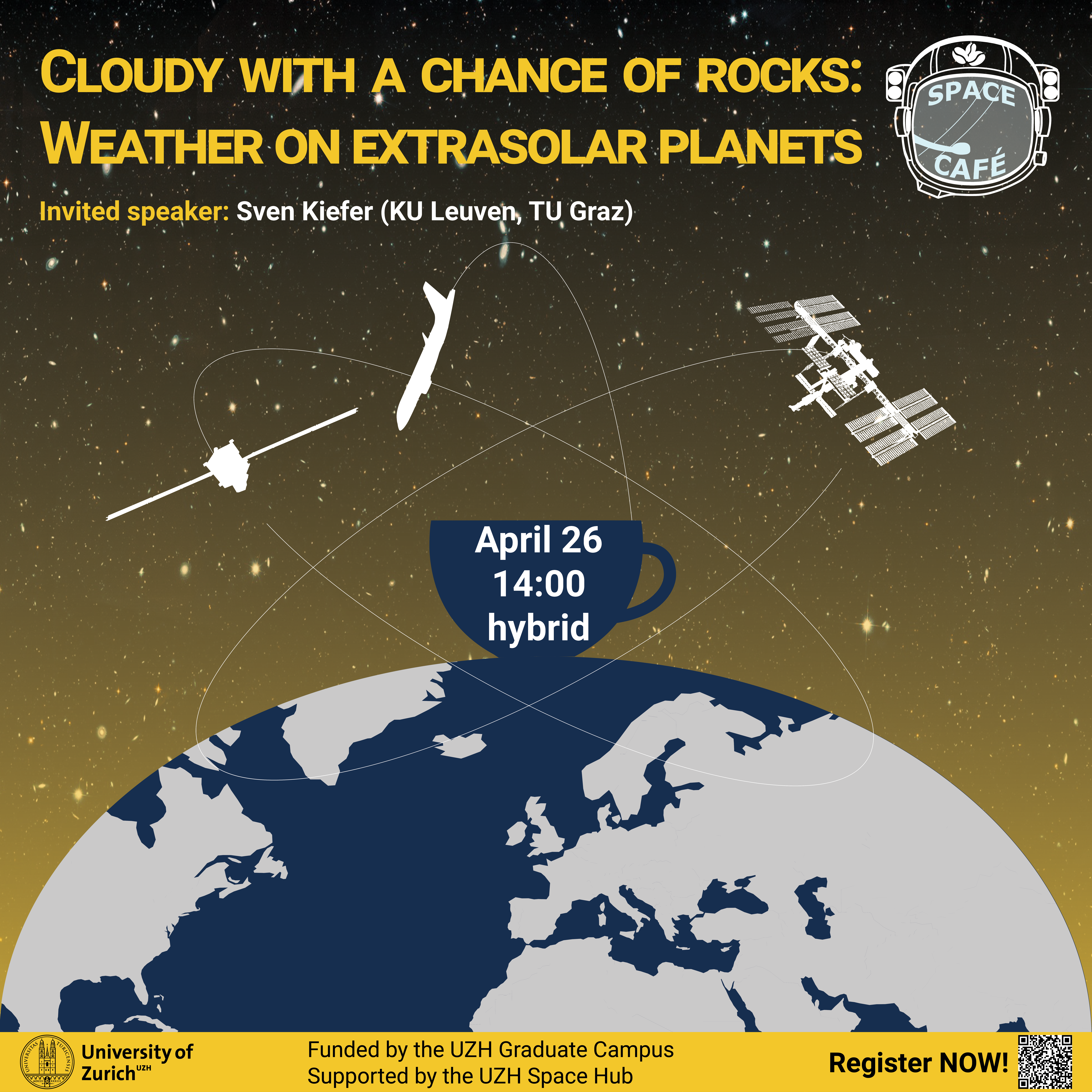Cloudy with a chance of rocks: Weather on extrasolar planets

Here on Earth, weather is one of the most important small talk topics, but what would we talk about if we were on an exoplanet? Thanks to state-of-the-art instrumentation and advanced modelling, we are beginning to understand the fascinating diversity of weather on planets outside of our own solar system.
Join us in this Space Café event, on April 26, 2022, at 14:00, our speaker will take you on a journey to discover the weather on exoplanets: from strong equatorial wind jets to clouds made of minerals. This event will take place in a hybrid mode, on-site (Irchel campus) and online. However, seats are limited and will be assigned on a first come-first serve basis. Registration at the end of this page
More about Space Café event series.
Speaker

Sven Kiefer finished his Master's degree in Physics at ETH Zurich in 2020. During his Master's he focused on astrophysics and wrote his Master's Thesis on the topic of direct detection of exoplanets. Afterwards, he started his PhD in astrophysics at KU Leuven and TU Graz. He researches cloud formation in 3D exoplanet atmospheres. For this, he improves current global circulation models for exoplanet atmospheres to including cloud formation and the clouds' feedback onto the exoplanet's atmosphere.
Talk
Exoplanet surveys like Kepler have discovered thousands of exoplanets meaning we are now aware of the large diversity of exoplanets that exist in our galaxy. Now, the next step is to characterise the exoplanets that have been detected. With current state-of-the-art technology, we are already starting to gain insights into their atmospheres, and with upcoming instruments like the James Webb Space Telescope (JWST) we hope to deepen our understanding of these alien worlds.
Some of the most fascinating objects discovered so far are Hot Jupiters: planets the size of Jupiter but with orbital periods of just days. These giant gas planets are tidally locked, which results in permanent day and permanent night sides. The temperature, winds and clouds on these planets are nothing like we know from planets within our solar system and understanding them is the first step to understanding the diverse atmospheres of exoplanets.